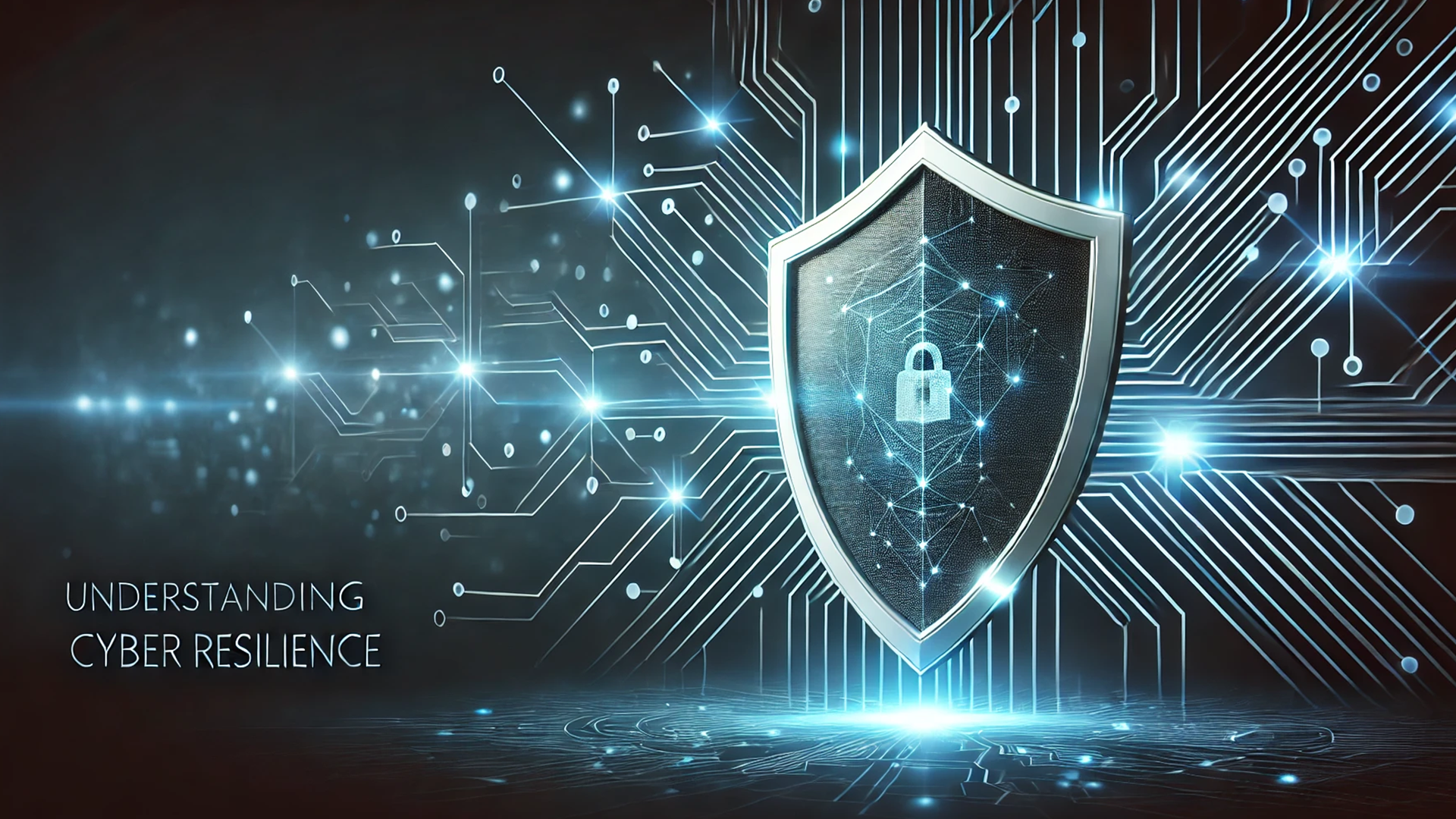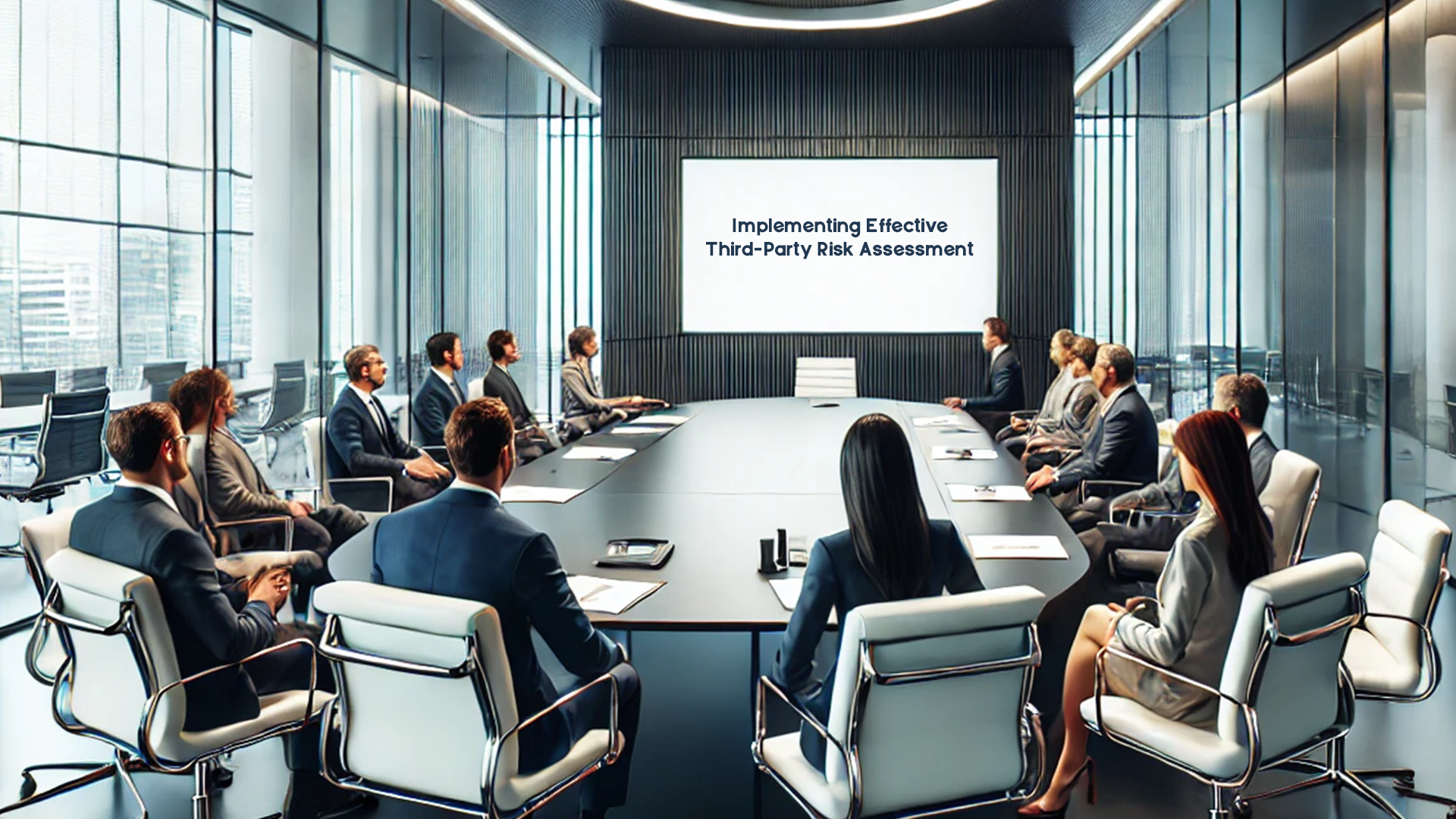
Thank you
Our team of industry domain experts combined with our guaranteed SLAs, our world class technology .


Get Immediate Help
Imagine you’re running a sophisticated oil and gas operation in Saudi Arabia. Your systems are optimised, your processes are efficient, and your production is at an all-time high. But lurking in the shadows are cyber threats that could bring everything to a halt. In this blog, we’ll explore how third-party risk assessments can help secure your digital infrastructure, ensuring smooth operations and safeguarding your valuable data.

Cyber resilience is the ability of an organisation to continuously deliver the intended outcome despite adverse cyber events. It encompasses a combination of cybersecurity measures and business continuity strategies designed to anticipate, withstand, recover from, and adapt to cyber attacks.
Key Components of Cyber Resilience:
- Prevention: Establishing strong defences to prevent cyber incidents.
- Detection: Identifying threats early through continuous monitoring.
- Response: Effectively managing and mitigating the impact of cyber incidents.
- Recovery: Restoring normal operations quickly and efficiently.


Third-party risk assessment is a crucial process that evaluates the security practices of vendors and partners to ensure they do not introduce vulnerabilities into your organisation. This is particularly important in the oil and gas sector, where supply chains are extensive and complex.
1. Identifying Vulnerabilities
A comprehensive third-party risk assessment helps identify vulnerabilities within the supply chain, ensuring that all partners meet your security standards.
- Supply Chain Risk Assessment in UAE Oil and Gas: Evaluating the security of your entire supply chain.
- Vendor Risk Assessment: Assessing the security measures of individual vendors.
2. Enhancing Cybersecurity Posture
Mitigating third-party risks strengthens your overall cybersecurity posture. This involves continuous monitoring and improvement of security measures.
- Advanced Cybersecurity Solutions for UAE Oil and Gas Sector: Implementing advanced solutions to protect against third-party risks.
- Third-Party Risk Management: Establishing robust processes to manage third-party risks.
3. Ensuring Business Continuity
Effective third-party risk management ensures that your operations can continue smoothly even if a third-party provider experiences a security incident. This includes having contingency plans in place.
- Safety Management Systems: Implementing systems to ensure business continuity.
- Managed IT Services for Oil and Gas Companies: Leveraging managed services to enhance security and continuity.

To effectively manage third-party risks, organisations need to follow a structured approach:
1. Establish Clear Policies and Procedures
Develop and communicate clear policies and procedures for third-party risk management. Define roles, responsibilities, and security standards.
- Oil and Gas Cybersecurity Regulations: Ensure policies comply with industry regulations.
- Third-Party Risk Management: Establish comprehensive risk management procedures.
2. Conduct Thorough Assessments
Regularly assess all third-party providers to evaluate their security practices. This includes reviewing their security policies, performing site visits, and conducting vulnerability scans.
- Vendor Risk Assessment: Conduct thorough evaluations of vendor security measures.
- Cyber Risk Assessment Oil and Gas: Assess the overall cyber risk to your organisation.
3. Implement Continuous Monitoring
Use automated tools to continuously monitor third-party activities and compliance. This helps detect potential security issues early.
- Supply Chain Risk Assessment in UAE Oil and Gas: Continuously monitor your supply chain for potential risks.
- Managed IT Services for Oil and Gas Companies: Enhance monitoring capabilities with managed services.
4. Develop Incident Response Plans
Create incident response plans that include third-party scenarios. This ensures a quick and effective response to security incidents involving third parties.
- Safety Management Systems: Incorporate third-party incidents into safety management plans.
- Incident Response Plans: Ensure comprehensive coverage of third-party risks.
5. Educate and Train Employees
Provide training and resources to employees on the importance of third-party risk management and best practices for maintaining security.
- Employee Training in Cybersecurity Saudi Arabia: Offer training focused on third-party risk management.
- Security Awareness Best Practices: Educate employees on best practices for maintaining security.

Implementing effective third-party risk assessment brings several benefits that enhance cyber resilience:
1. Improved Security Posture
Identifying and mitigating potential vulnerabilities strengthens the overall security posture of the organisation.
- Advanced Cybersecurity Solutions for UAE Oil and Gas Sector: Leverage advanced solutions to improve security.
- Cyber Resilience in Oil and Gas: Enhance resilience through proactive risk management.
2. Reduced Risk of Cyber Incidents
Addressing third-party risks reduces the likelihood of cyber incidents and minimises their impact.
- Mitigating Third-Party Risks: Implement measures to reduce the risk of incidents.
- Cyber Threats to Oil and Gas Industry: Address threats specific to the industry.
3. Enhanced Compliance and Trust
Effective third-party risk management ensures compliance with regulations and builds trust among stakeholders.
- Oil and Gas Cybersecurity Regulations: Ensure compliance with relevant regulations.
- Building Trust: Demonstrate a commitment to security and compliance.
At Microminder Cybersecurity, we offer a comprehensive suite of services designed to help organisations in the oil and gas sector achieve and maintain robust cyber resilience through effective third-party risk assessment. Here’s how we can support your organisation:
- Third-Party Risk Assessment Services: Identify and address vulnerabilities within your supply chain through thorough assessments and continuous monitoring.
- Managed IT Services: Enhance security monitoring, develop incident response plans, and ensure business continuity with our managed IT services.
- Security Awareness Training: Educate employees on cybersecurity best practices and third-party risk management through interactive training modules and phishing simulations.
- Compliance and Regulatory Services: Ensure compliance with relevant regulations and industry standards, provide audit support, and continuously monitor compliance efforts.
- Risk Management and Assessment: Conduct comprehensive risk assessments and implement structured frameworks to manage and mitigate identified risks.
- Incident Response Planning and Management: Develop detailed response plans, implement real-time monitoring, and establish clear incident reporting procedures.
- Cybersecurity Consulting: Assist in strategic planning, implement best practices, and offer ongoing consulting support to enhance your security posture.
In the interconnected world of oil and gas, ensuring cyber resilience requires a comprehensive approach to third-party risk assessment. By identifying vulnerabilities, enhancing cybersecurity posture, and ensuring business continuity, organisations can protect their critical infrastructure and data from evolving cyber threats.
Ready to enhance your oil and gas company’s cyber resilience with expert third-party risk assessment solutions? Contact us today to learn how our comprehensive services can help you implement effective risk management practices, ensuring your company remains secure, resilient, and compliant with industry regulations. Let’s work together to protect your critical assets and drive operational excellence.
Don’t Let Cyber Attacks Ruin Your Business
Call
UK: +44 (0)20 3336 7200
KSA: +966 1351 81844
UAE: +971 454 01252
Contents
To keep up with innovation in IT & OT security, subscribe to our newsletter
Recent Posts
Penetration Testing | 10/11/2025
Cloud Security | 07/11/2025
Cybersecurity | 06/11/2025
Why is cyber resilience important in the oil and gas sector?
The oil and gas sector is a prime target for cybercriminals due to its critical infrastructure and valuable data. Ensuring cyber resilience is essential to protect against these threats, maintain operational integrity, and comply with regulatory requirements.What are the common cyber threats to the oil and gas industry?
Common cyber threats include: - Phishing Attacks: Attempting to gain sensitive information through deceptive emails. - Ransomware: Malicious software that encrypts data and demands ransom for decryption. - Industrial Control System (ICS) Attacks: Targeting the systems that control industrial processes. - Supply Chain Attacks: Exploiting vulnerabilities in third-party providers to gain access to the primary target.Why is third-party risk assessment crucial for the oil and gas sector?
The oil and gas sector relies on extensive supply chains and third-party providers. Ensuring these partners adhere to robust security standards is crucial to prevent potential vulnerabilities that could compromise the entire operation.How can third-party risk assessments enhance cyber resilience?
Third-party risk assessments help: - Identify Vulnerabilities: Detect potential security weaknesses in third-party providers. - Enhance Security Posture: Strengthen overall cybersecurity by addressing third-party risks. - Ensure Business Continuity: Develop contingency plans to handle potential disruptions from third-party incidents.What are the benefits of effective third-party risk management?
Benefits include: - Improved Security Posture: Stronger defence against cyber threats. - Reduced Risk of Incidents: Lower likelihood of cyber incidents from third-party vulnerabilities. - Enhanced Compliance: Better adherence to regulatory requirements. - Increased Trust: Building trust among stakeholders by demonstrating a commitment to security.